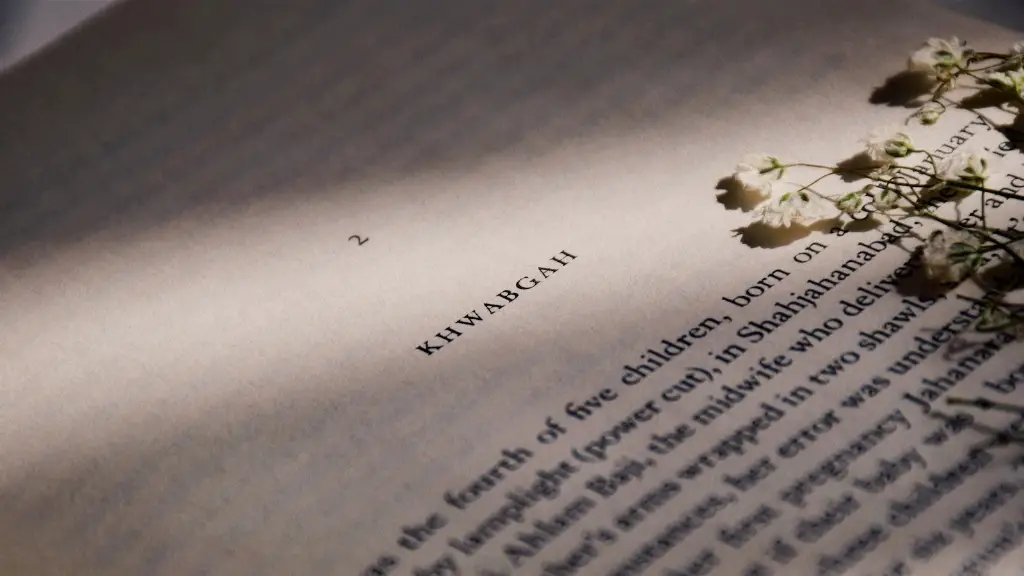What is Poetry According to Shelley?
For decades poets have tried to answer the never-ending question of what is poetry, for them and for their craft, and few have answered it as accurately as the English Romantic poet Percy Bysshe Shelley. Shelley, who wrote a variety of crucial and influential works including ‘Ode to the West Wind’, was no stranger to articulating the power of poetry and how much of a persuasive tool it is.
For Shelley, poetry essentially freed him and those who shared his convictions from the bounds of society, and the power it had over his writing was one that he would never let go of right up until his untimely death in 1822.
When Shelley published his essay ‘A Defence of Poetry’ in January of 1821, he outlined what he and many other poets, scholars, and artists had been discussing for years: the power of poetry and its place in society. Shelley argued that poetry was essentially what could keep society from becoming enslaved, and that it is “at once the centre and circumference of knowledge”. In other words it is the source, and container, of other forms of knowledge and can both evolve and be creative.
Shelley further argued that poetry was “a source of pleasure and instruction” and that it could “exhilarate and sustain” without becoming corrupted or stagnate. In a world where many artists had to suffer for their craft and their beliefs, Shelley was unafraid of pushing the boundaries of censorship and what was accepted and challenging his readers to think differently.
For Shelley, literature and poetry in particular, had the power to express what could not be expressed before, and to allow people to have a voice.
Shelley concluded, with a convincing case, that “a great poem is a fountain for ever overflowing with the waters of wisdom and delight”, and a poem should not be judged by its form alone, but by its power to ignite the imagination.
The Legacy of Shelley’s Poetry
The echoes of Shelley’s voice in poetry can be heard all over the world, in a variety of languages and dialects. His works and experiences inspired other generations of poets, including his wife Mary Shelley and his great friend Lord Byron, to come forward and express their own thoughts and feelings on life.
They also shaped how poetry is taught today, as Shelley’s artistic vision has manifested in schools and universities all over the globe. It is not uncommon to come across a course or an academic paper dedicated to an analysis of the works of Shelley, and many a student has begun their poetic exploration in the footsteps of the ‘greatest lyrical poet of the 19th century’.
Shelley’s legacy of inspirational poetry is still very much alive and thriving, with his works being translated into films, television shows, and literature, adapting and expanding on the topics and ideas he explored during his lifetime.
Many a fellow poet has credited Shelley and his works as one of the main inspirations for their own writing, including other famous poets such as W. B. Yeats, who wrote in his poem ‘The Tower’ that Shelley “brought in his singing a new dawn.”
The Fascinating Craft of Poetry
One of the main qualities of Shelley’s poetry was its thought-provoking depth. His works are often a call to action, as his imagination and innovation drove his own works and challenged readers to think critically about the ideas outlined within.
In the same way, Shelley’s use of language is gripping, with powerful descriptions and metaphors capturing the imagination and broadening horizons. Through the use of language with inherent emotion, readers are captured by the idea of the poem, which was the mode of expression that Shelley championed.
Shelley had the eye for detail akin to a modern-day detective, which further added to the captivating craft of his poetry. With careful consideration of script, image and rhythm, he was able to craft thoughtful and meaningful pieces that have transcended time and remain relevant in the age of literature.
Poetry isn’t just mere words on a page, and Shelley understood this better than most, with the understanding that “poetry lifts the veil from the hidden beauty of the world, and makes familiar objects be as if they were not familiar”.
The Impact of Shelley’s Idea of Poetry
Nearly two centuries after Shelley wrote ‘A Defence of Poetry’, his work still influences not only poetry and literature, but also more modern forms of expression such as film, music and visual art. His work has now become an anchor for upcoming artists, who recognise what his work has done for culture and society in the past.
In general, Shelley changed the paradigm of literature, with an empowering theme of self-liberation and hope, contrasted by the melancholic beauty of his last works. He rallied against traditional conventions and argued for the importance of freedom from tyranny and oppression, an idea that was picked up by writers and poets long after his death, and continues to remain relevant today.
Shelley’s work has had an undeniable impact on the way both the world of the arts and the world of politics interact with each other. He encouraged writers to write what they knew, and to write with courage and confidence, and his works were often rooted in ideas of political change, which were both empowering and empowering.
The Beauty of Shelley’s Poetry
Since its day of release, Shelley’s poetry has remained a favourite amongst readers and writers alike, as his words echo through each poem. His works remain an example of beauty born out of tragedy, as his innovative techniques and ability to capture the human experience changed and honed the form of poetry to great acclaim.
Shelley’s poetic style found success amongst his peers and has continued to inspire throughout history, and today his works are still relevant and captivating. In a contemporary world of art, his poems remain timeless, unencumbered by the passing of time, and are able to mesmerize a readership of all ages.
More than two centuries after it was first published, Shelley’s ‘A Defence of Poetry’ stands as a powerful statement of the power of poetry and its ability to move, inspire, and educate people. Shelley’s words have continued to resonate for so long because of his insight into what poetry is, and his passionate exploration and defence of it.
The Passion of Shelley’s Writing
Shelley had a knack for finding the beauty in the darkest of moments, and this is clearly translated in his works. His combination of emotion and intensity drew people in, captivating and assisting them in their exploration of the human experience.
The combination of themes that felt poetic in Shelley’s works were ambitious, leading people to believe in the idea that they could be whatever they wanted, and to break free from any societal restrictions holding them back. His works were passionate as his feelings leaked through his characters and his words.
The motivating power of Shelley’s writing was an inspiration to many, helping them move forward and make their ideas heard in their own work. This motivational tone is still felt today, in modern works of literature, art and music, but no words were as passionate and thoughtful as Shelley’s.
The Relevance of Shelley’s Work
The relevance of Shelley’s work can be found in the pages of our own writing today. His challenging view on poetry as something that is meant to be liberating and empowering, to both the writer and reader, can be seen in our modern writing.
We have seen a shift in how poetry is used in recent decades, with many writers and poets harnessing the power of Shelley’s words in a call to arms on issues relating to politics and social change.
The power of Shelley’s work has also been felt outside of written word, with visual artists, musicians, and filmmakers all inspired by his words to create their own art. His work has been seen to empower generations of people to believe in their own voices, and to use works such as his to communicate their own experiences.
Like the writing of Percy Bysshe Shelley before us, we have challenged and adapted our own writing to express the inexpressible. In this way we have gained our own understanding of what poetry is and its many shapes, sizes and forms.





